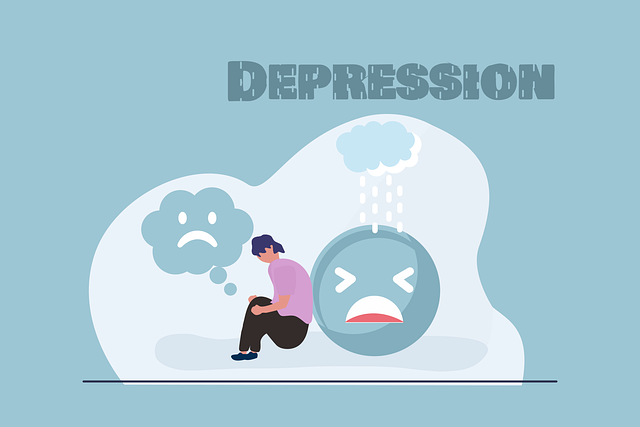Littleton Crisis Counseling Therapy (LCCT) enhances emotional well-being through its RFM framework: Resources, Fortitudes, and Meanings, empowering clients with mindfulness meditation, self-care routines, and practical tools to navigate challenges. Specializing in immediate support and long-term coping strategies, LCCT provides structured programs like Trauma Support and Social Skills Training for personal and professional growth. Their holistic approach combines traditional counseling with innovative burnout prevention, fostering community resilience and contributing to a more adaptable society.
Resilience is our ability to bounce back from challenges, and RFM (Recovery, Flexibility, Mastery) offers a powerful framework for building it. This article explores how crisis counseling plays a pivotal role in enhancing resilience through tailored exercises. We delve into practical strategies applicable at home and work, showcasing the effectiveness of Littleton Crisis Counseling Therapy as a case study. Discover how these methods foster adaptability, promote healing, and strengthen communities’ overall resilience.
- Understanding RFM: A Framework for Resilience
- The Role of Crisis Counseling in Building Resilience
- Practical Exercises to Enhance Resilience at Home and Work
- Littleton Crisis Counseling Therapy: A Case Study in Resilient Community Support
Understanding RFM: A Framework for Resilience

Resilience is a critical component of emotional well-being, enabling individuals to navigate life’s challenges with strength and adaptability. At Littleton Crisis Counseling Therapy, we understand that building resilience isn’t about avoiding hardship but rather equipping individuals with tools to face and overcome adversity. This is where the RFM framework comes into play—a structured approach to enhancing resilience.
RFM stands for Resources, Fortitudes, and Meanings, three key elements that contribute to a robust resilience. By identifying and cultivating personal resources, such as support networks and coping strategies, individuals can strengthen their ability to cope with stress. Additionally, fortitudes, including traits like optimism and problem-solving skills, empower people to view challenges as opportunities for growth. Lastly, assigning meaning to experiences fosters a sense of purpose and helps individuals find strength in their struggles. Through practices such as mindfulness meditation and self-care routines, Littleton Crisis Counseling Therapy guides clients in harnessing these elements, ultimately fostering resilience that can transform life’s challenges into stepping stones for personal development.
The Role of Crisis Counseling in Building Resilience

Crisis Counseling plays a pivotal role in building resilience among individuals and communities. This therapeutic approach is particularly crucial in helping people navigate through stressful situations, traumatic events, or mental health crises. By focusing on immediate support and long-term coping strategies, Littleton Crisis Counseling Therapy offers a safety net during turbulent times.
Through risk assessment for mental health professionals, crisis counselors help identify vulnerabilities and develop personalized self-care practices to enhance emotional regulation. They equip individuals with the tools to manage stress, rebuild after adversity, and foster resilience—all essential components of mental well-being. These exercises are designed to empower folks to face challenges head-on, ensuring they emerge stronger and better equipped to handle future uncertainties.
Practical Exercises to Enhance Resilience at Home and Work

Building resilience is an essential aspect of navigating life’s challenges and uncertainties. Fortunately, there are practical exercises that individuals can engage in both at home and in the workplace to enhance their resilience. One effective approach is incorporating mindfulness practices such as meditation and deep breathing exercises into daily routines. These techniques help individuals stay grounded in the present moment, reducing stress and anxiety triggered by past traumas or future worries.
Littleton Crisis Counseling Therapy offers valuable resources for those seeking support. Their Trauma Support Services and Social Skills Training programs provide structured environments to practice emotional healing processes. By participating in these initiatives, individuals can develop coping mechanisms tailored to their unique experiences. Whether it’s through group therapy sessions or one-on-one counseling, these activities foster a sense of safety and empowerment, enabling people to build resilience and lead more fulfilling lives both personally and professionally.
Littleton Crisis Counseling Therapy: A Case Study in Resilient Community Support

Littleton Crisis Counseling Therapy (LCCT) stands as a remarkable example of community resilience and support in times of crisis. Founded with the understanding that mental health is a cornerstone of overall well-being, LCCT has been instrumental in providing immediate relief and long-term guidance to individuals and families facing various challenges, from personal trauma to community-wide disasters.
Through its innovative approach, LCCT combines traditional counseling techniques with cutting-edge burnout prevention strategies for healthcare providers. By prioritizing communication strategies and risk management planning for mental health professionals, they ensure that their services are accessible, effective, and sustainable. This holistic model not only helps individuals recover from acute crises but also equips them with the tools to build resilience, fostering a more adaptable and resilient community overall.
Resilience is a vital asset in navigating life’s challenges, and the strategies outlined in this article provide a comprehensive guide. From understanding RFM as a framework for building resilience to the practical exercises enhancing preparedness at home and work, each section contributes to fostering a robust support system. The case study of Littleton Crisis Counseling Therapy exemplifies the positive impact of community-based interventions during crises. By integrating crisis counseling and resilience-building practices, individuals and communities can better equip themselves to face unforeseen circumstances, ensuring long-term adaptability and emotional well-being.














